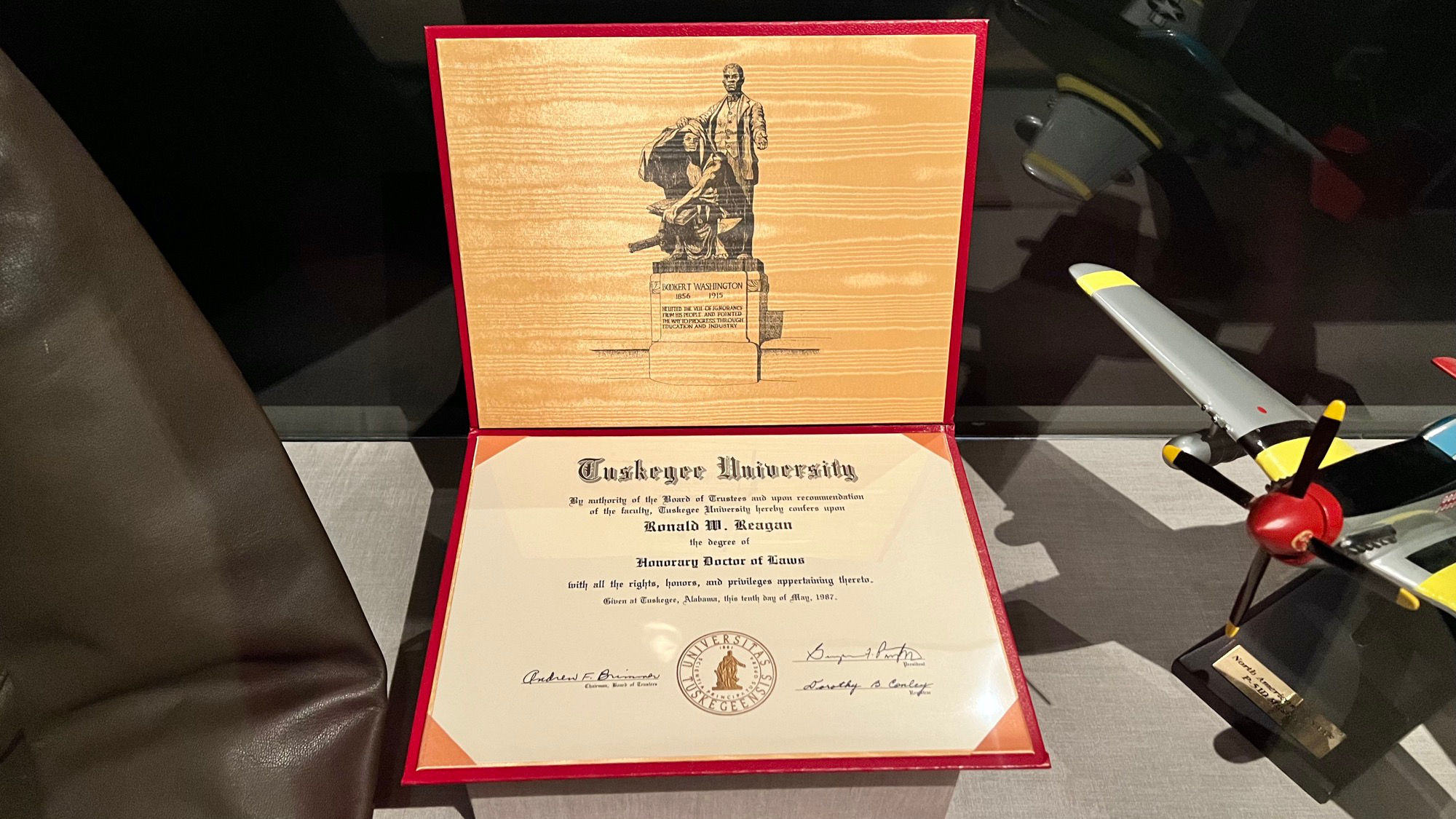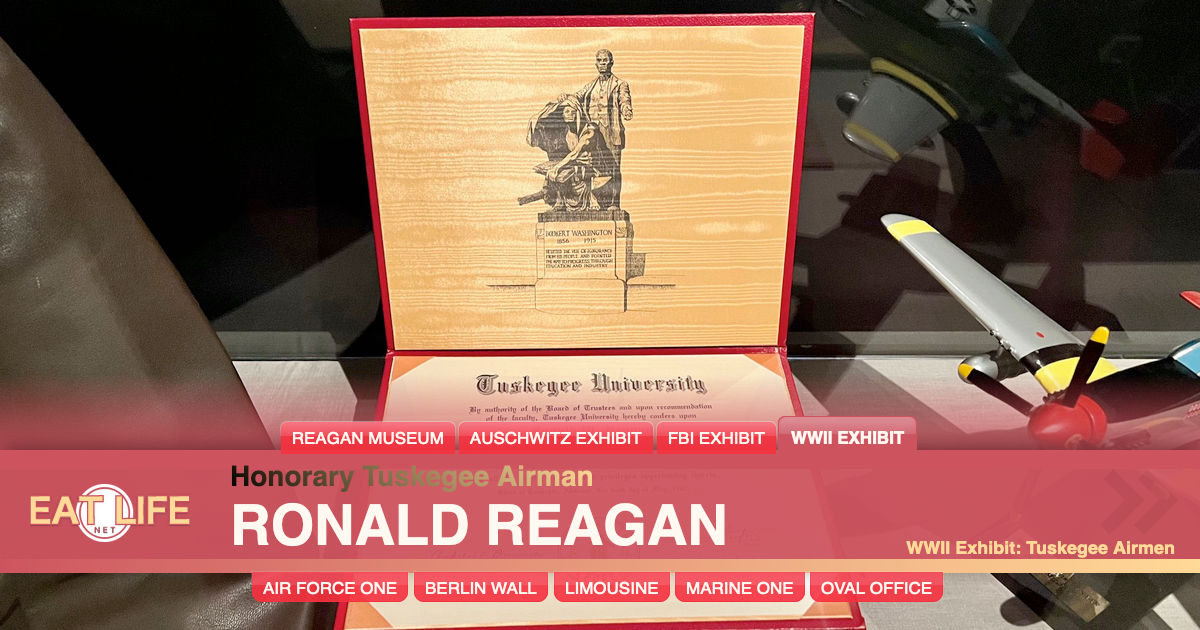
Ronald Reagan and the Tuskegee Airmen
In 1987, President Ronald Reagan visited Tuskegee University to speak at their commencement. It was his first visit to an African American college as president. Reagan had planned on attending the 100th commencement ceremony of the Tuskegee Institute in April 1981, honoring its founder Booker T. Washington, but he was unable to attend in the aftermath of the assassination attempt on his life. President Reagan was finally able to visit Tuskegee in 1987 to dedicate the university's newest building the Daniel "Chappie" James Center for Aerospace Science and Health Education. The grant for the construction was approved by President Reagan in 1984.
At that grant ceremony, which coincided with the 58th Black history mönth celebration, President Reagan acknowledged he had narrated the 1945 US Army Air Force First Motion Picture film entitled "Wings for this Man." The film documented the creation and achievements of the Tuskegee Airmen, as well as the highlighted racial injustices they faced. President Reagan recalled "how impressed I was by the skill and bravery of those fliers." The grant was presented to the President of the Tuskegee Airmen Association and retired Tuskegee airman Brig Gen Charles E. McGee.
Brig Gen McGee presented President Reagan with a flight jacket and made him an honorary Tuskegee Airman.
Tuskegee AirmenBrig Gen McGee
Brig Gen McGee was a part of the 332nd Fighter Group in 1943 and flew 136 sorties over Europe. He also bravely fought in Korea and in Vietnam for a collective total of 409 combat missions. At a Black History Month celebration in 1984, Reagan highlighted a small portion of Chappie's career. He became a 2LT in the Army Air Corp in 1943 and joined the 477th Bombardment Group to train in B-25s. Although this unit never deployed, Chappie did fly 101 combat missions in Korea and another 78 combat missions in North Vietnam. On September 1, 1975, he was promoted to four-star general, the first Black four-star general in the United States Air Force. At the same time, he was given command of the North American Aerospace Defense Command (NORAD).President Reagan said of Gen Chappie, he was a "hero in two wars, fighter against discrimination, champion of equal opportunity, believer in personal responsibility-Chappie wore four stars on his shoulders and fifty stars in his heart."

1984
President Reagan was named an honorary Tuskegee Airman in 1984 at a Black History Month celebration, and the award was presented by Tuskegee Airman Brig Gen Charles E. McGee. At the event, President Reagan said of narrating the Tuskegee film, "I remember how impressed I was by the skill and bravery of those fliers."

Tuskegee University
President Reagan was given an honorary degree when he spoke at the 1987 Tuskegee University Commencement Ceremony. During his speech he said, "I can't tell you how proud I am to be an honorary Tuskegee Airman. And if they hadn't made me wear this robe, you'd have seen I was wearing the button in my lapel."







